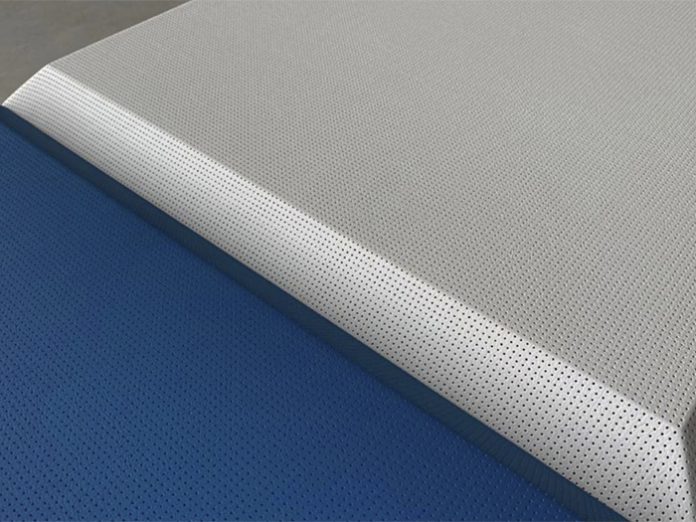Portuguese acoustic treatment specialist Artnovion (distributed in the UK, Spain and the Netherlands by Audio-Technica) has announced the release of its new MedLine range of cleanable acoustic treatment products. Featuring hospital-grade anti-bacterial coatings and hardwearing, washable anti-odour finishes, MedLine caters to a wide market at a time when every industry needs to ensure COVID-safe workspaces.
The range comprises both fabric absorbers (Sparta AE, Troy and Azores AE products) and wood absorbers (Lyra 8 CL and Norma 8 CL panels), making MedLine suitable for a wide variety of applications including healthcare and well-being facilities that require the highest levels of cleanliness. Noise levels in today’s hospitals are the highest ever documented and have a tremendous impact on the privacy, comfort and stress levels of patients and staff. And in well-being spaces such as gyms, pools or spas, acoustic comfort plays a huge role in how beneficial and enjoyable the user experience is.
Where infection control has traditionally been achieved through the use of antimicrobial materials with bactericide and fungicide properties, viruses present a different challenge because they do not proliferate by themselves on inert surfaces. Instead, viruses rest on surfaces waiting for a new host to inadvertently touch them and put them in contact with any mucosa, infecting the host. For this reason, in addition to the regular antimicrobial protection, the best way to defend against the new COVID-19 threat is to regularly clean all exposed surfaces with disinfectant products.
Artnovion’s MEDLINE-Cleanable products are made from antimicrobial materials that provide protection against all other agents and can also be cleaned with COVID-19 killing disinfectants.
The surfaces on these acoustic elements need to be perforated, allowing for sound waves to penetrate the panel for optimal sound absorption. Surface resting pathogens are eliminated by the outer surface’s antimicrobial treatment and by regular disinfection. The inner perforation surfaces are inaccessible and cannot be touched, meaning that they do not contribute in any way to the transmission of pathogenic agents.





